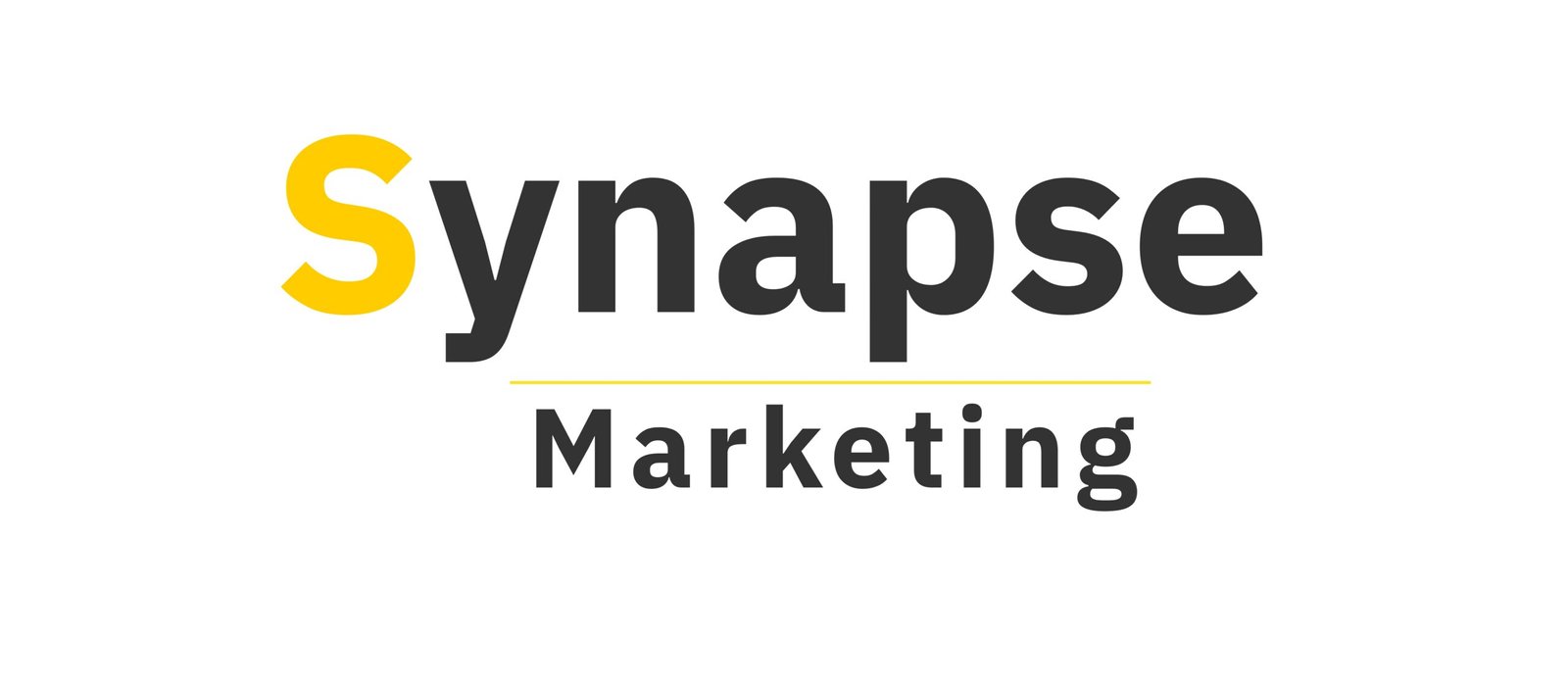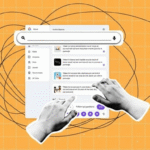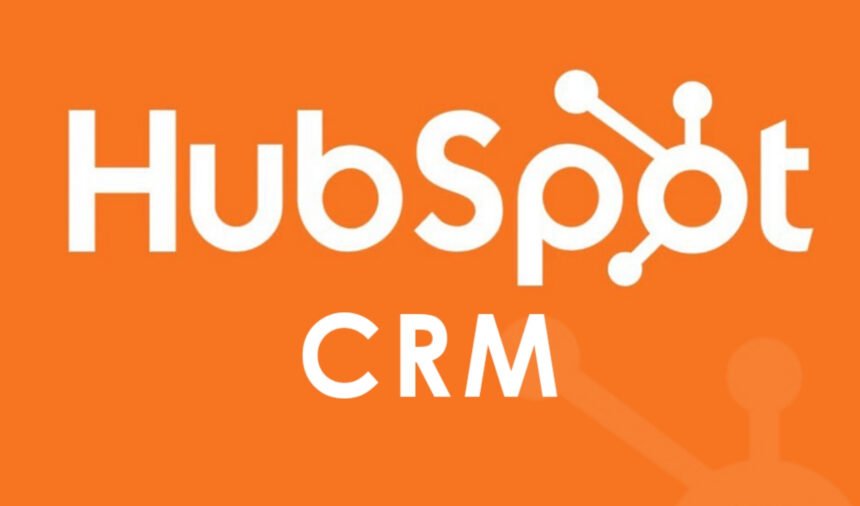In 2025, HubSpot continues to be a leading force in the world of CRM (Customer Relationship Management) software, offering a comprehensive suite of tools designed to empower businesses of all sizes. Originally founded as a marketing automation platform, HubSpot has evolved into a multifaceted tool that integrates marketing, sales, service, and operations all within one system. This evolution has made HubSpot not only an essential tool for digital marketers but also a crucial resource for business owners and growth teams looking to streamline operations and enhance customer relationships.
At its core, HubSpot CRM is built to simplify the often complex processes that businesses face when it comes to customer management, marketing campaigns, and sales pipelines. It’s an accessible, user-friendly platform that enables businesses to automate workflows, generate and nurture leads, and ultimately drive growth—all without the need for advanced technical skills.
With more than 100,000 customers globally and a reputation for continuous innovation, HubSpot is consistently updating its tools to keep up with industry demands. In 2025, the platform’s features have expanded to integrate cutting-edge AI tools, deeper integrations with third-party platforms, and enhanced reporting capabilities.
One of the standout features of HubSpot in 2025 is its focus on AI-powered automation. HubSpot’s AI tools, such as its Breeze AI, now offer personalized experiences for users and customers alike. These tools automatically score leads, suggest sales actions, and help marketing teams deliver personalized campaigns—saving time and increasing productivity.
For businesses looking to improve efficiency, maximize ROI, and stay ahead in the competitive landscape, HubSpot’s all-in-one CRM solution is a compelling choice. Let’s dive deeper into the features, benefits, and pricing structure of HubSpot to understand why it’s considered one of the best CRM platforms on the market today.
Core Features of HubSpot CRM
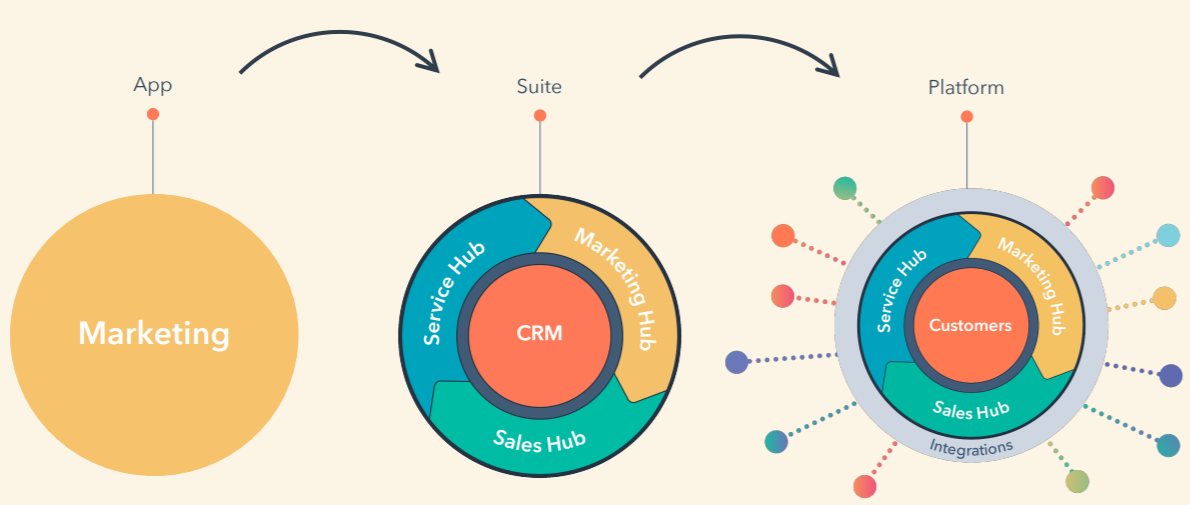
One of the primary reasons HubSpot stands out in the crowded CRM space is its robust and user-friendly feature set. Whether you’re managing customer relationships, tracking sales performance, or running marketing campaigns, HubSpot CRM has built-in tools to handle it all. In this section, we’ll take a closer look at the core features that make HubSpot CRM a powerful tool for businesses.
Contact Management
At the heart of any CRM is contact management, and HubSpot excels in this area. HubSpot’s contact management tool allows you to store, track, and organize all your customer data in one central location. You can easily add new contacts, update existing information, and categorize contacts based on criteria such as lifecycle stage, industry, and region. This makes it easier for sales and marketing teams to engage with the right people at the right time.
HubSpot goes a step further by automating many of the processes around contact management. For instance, the system automatically logs customer interactions, including emails, meetings, and calls, ensuring that all touchpoints are captured and stored in the contact record. This not only saves time but also ensures that all teams have access to the same up-to-date information.
Sales Pipeline and Tracking
HubSpot’s sales pipeline tracking tools allow sales teams to monitor every deal’s progress from the first touch to closing. The sales pipeline feature is highly customizable, allowing businesses to tailor it to their unique workflow. Each stage of the pipeline can be named according to specific needs, and progress can be tracked using drag-and-drop functionality.
What sets HubSpot apart in terms of sales tracking is its ability to provide detailed insights into each deal. You can track deal stages, assign tasks to sales reps, and view key performance metrics directly from your dashboard. These features make it easy to stay on top of your sales process and identify any bottlenecks that may hinder your progress.
Marketing Automation
Marketing automation is another key feature of HubSpot CRM, and it plays a crucial role in driving inbound marketing efforts. HubSpot’s Marketing Hub allows businesses to create automated workflows that nurture leads, engage customers, and convert prospects into paying customers. Whether it’s through automated email campaigns, lead scoring, or follow-up tasks, HubSpot’s marketing automation tools help marketers save time and improve their efficiency.
You can create personalized email campaigns based on contact data, trigger emails based on certain actions, and even segment your audience to send targeted content. HubSpot’s advanced analytics tools also provide detailed insights into campaign performance, allowing you to continuously refine your marketing strategies.
Reporting and Analytics
When it comes to measuring success, HubSpot offers comprehensive reporting and analytics features. The platform provides an array of pre-built reports, including sales performance, website traffic, and customer engagement metrics. You can also create custom reports to track specific data points that are most relevant to your business.
HubSpot’s reporting tools are especially useful for tracking ROI and identifying areas for improvement. For example, by analyzing customer lifecycle data, businesses can gain valuable insights into which marketing channels are driving the most leads and which sales tactics are most effective in closing deals.
Integrations with Third-Party Apps
HubSpot’s ability to integrate seamlessly with a wide range of third-party tools is one of its biggest advantages. It offers integrations with platforms like Salesforce, Slack, Mailchimp, Google Analytics, and hundreds more. These integrations ensure that HubSpot works well within your existing tech stack, allowing you to connect all your tools in one unified platform.
In addition, HubSpot’s App Marketplace is continually growing, allowing businesses to expand its functionality with apps tailored to their specific needs. Whether you’re in need of advanced analytics tools, project management software, or social media integrations, HubSpot has you covered.
HubSpot CRM’s core features make it an all-in-one solution for businesses looking to manage and grow their customer relationships. With robust tools for contact management, sales pipeline tracking, marketing automation, and analytics, HubSpot provides everything a business needs to enhance its sales and marketing efforts. Furthermore, its seamless integrations with third-party tools ensure that HubSpot can fit into your existing workflows, enhancing your team’s productivity.
By leveraging these powerful features, businesses can streamline their operations, improve their efficiency, and ultimately drive growth. HubSpot’s simplicity, combined with its comprehensive functionality, makes it a top choice for businesses of all sizes.
AI-Powered Tools: Breeze AI and Beyond
In 2025, HubSpot has significantly advanced its CRM offering by integrating cutting-edge artificial intelligence (AI) tools, providing businesses with the ability to streamline processes, improve customer engagement, and enhance decision-making. HubSpot’s AI-powered tools, particularly Breeze AI, are transforming how businesses interact with leads, nurture prospects, and automate daily tasks.
Breeze AI: Automating Sales and Marketing
One of HubSpot’s most noteworthy innovations is Breeze AI, which acts as an intelligent assistant for sales and marketing teams. Breeze AI is designed to make sense of large datasets and provide actionable insights that can drive personalized marketing and sales strategies.
For sales teams, Breeze AI can automatically score leads based on their interactions with your business, making it easier for sales reps to prioritize outreach efforts. This lead scoring system analyzes a contact’s behavior, such as email opens, website visits, and social media interactions, to predict the likelihood of conversion. By automating this process, sales reps can focus on the highest-value leads, ensuring better time management and increased sales.
For marketers, Breeze AI offers predictive analytics that can help create tailored campaigns. By understanding customer behavior patterns, the AI can suggest the most effective content and communication strategies to engage specific segments. This leads to higher engagement rates and better ROI on marketing efforts.
Smart Automation for Repetitive Tasks
HubSpot’s AI tools also offer automated solutions for repetitive tasks that would otherwise consume a significant amount of time. From automatically assigning leads to specific sales representatives to sending follow-up emails based on triggers, automation powered by AI ensures that no task falls through the cracks.
For example, if a lead fills out a contact form or engages with an email campaign, Breeze AI can automatically trigger an email sequence, assign the lead to a sales representative, and log the interaction within the CRM system. This level of automation not only saves time but ensures consistency in customer outreach and follow-ups, contributing to improved customer experience and retention.
AI-Driven Personalization
One of the key benefits of using AI tools in a CRM system is the ability to deliver hyper-personalized experiences. HubSpot’s AI-driven personalization capabilities take this to the next level by analyzing customer data and tailoring messages based on individual preferences and behaviors.
Breeze AI can assess each customer’s history with your brand—what content they’ve consumed, what products they’ve shown interest in, and even how they engage with your communications. Using this data, HubSpot’s AI tools can help businesses craft more relevant, timely, and personalized interactions. For instance, an AI-powered email marketing campaign can automatically adjust its messaging based on the recipient’s past interactions, ensuring that each message is highly personalized and relevant.
The Future of AI in HubSpot
HubSpot is not stopping at Breeze AI. As AI technology continues to evolve, the platform plans to integrate even more advanced AI capabilities into its CRM. This includes deeper machine learning models to predict customer behavior, as well as natural language processing (NLP) tools to understand and respond to customer inquiries more effectively.
HubSpot’s commitment to AI means that businesses using the platform will continue to benefit from increasingly sophisticated tools that automate processes, predict trends, and deliver personalized customer experiences—all while improving efficiency and reducing human error.
The inclusion of AI-powered tools like Breeze AI in HubSpot CRM is a game-changer for businesses looking to automate repetitive tasks, enhance customer engagement, and streamline sales processes. By leveraging AI to score leads, automate follow-ups, and personalize interactions, businesses can increase efficiency, improve conversion rates, and provide a more seamless experience for their customers. As HubSpot continues to evolve and integrate more AI-driven features, its platform remains at the forefront of CRM innovation, enabling businesses to stay competitive in an ever-changing market.
Pricing Plans and Value Proposition
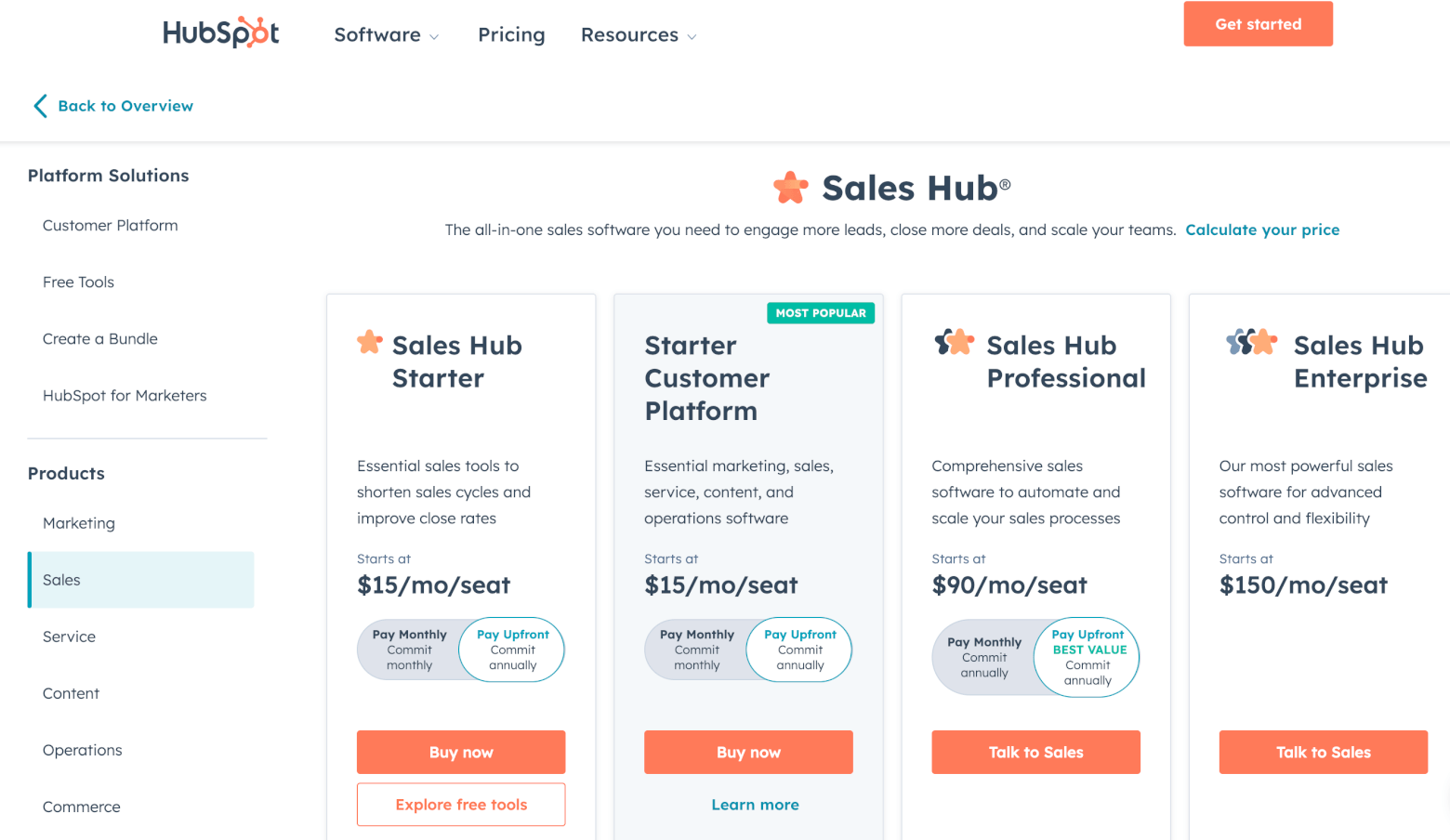
One of the key factors that make HubSpot CRM such an appealing choice for businesses is its flexible pricing structure. HubSpot offers a range of pricing plans designed to accommodate the needs of various business sizes, from small startups to large enterprises. This section will delve into the details of HubSpot’s pricing plans, helping you determine which tier offers the best value for your specific needs.
HubSpot’s Free Plan
For businesses that are just getting started or those with limited budgets, HubSpot offers a free CRM plan, making it a compelling option for small businesses and startups. The free plan comes with a variety of essential features, such as contact management, email tracking, deal tracking, and basic reporting. It also includes basic marketing automation tools and integrations with other HubSpot tools, providing a great starting point for businesses that need an easy-to-use CRM without any upfront cost.
The HubSpot free CRM plan is ideal for businesses that are looking to manage contacts, track leads, and send basic emails, all while getting accustomed to the platform’s functionality. While it does have its limitations—such as fewer customization options and reporting features—it provides great value for small businesses or teams with basic CRM needs.
Paid Plans: Starter, Professional, and Enterprise
While the free plan is an excellent entry-level option, HubSpot’s paid plans unlock a broader range of advanced features that help businesses scale and enhance their operations. These plans—Starter, Professional, and Enterprise—are designed to cater to different business requirements, allowing for more customization, automation, and reporting.
Starter Plan
The Starter Plan, which begins at $45/month, is best suited for small businesses or teams looking for basic CRM functionality combined with a few marketing automation tools. The plan includes:
- Lead capture forms
- Email marketing tools
- Live chat and chatbots
- Basic reporting and analytics
This plan is ideal for businesses that want to expand their customer management capabilities but aren’t yet ready to invest in the more advanced features available in higher-tier plans.
Professional Plan
The Professional Plan, priced from $800/month, is geared toward growing businesses that require more sophisticated features for managing their sales, marketing, and service teams. This plan includes:
- Advanced automation workflows
- A/B testing for email campaigns
- Custom reporting
- Team collaboration features
The Professional Plan also allows for more in-depth integrations with third-party tools, making it a great choice for businesses that require a scalable solution as they grow.
Enterprise Plan
For large businesses or enterprises with complex needs, the Enterprise Plan offers advanced features and greater customization at a starting price of $3,200/month. This plan includes:
- Custom reporting and analytics
- Predictive lead scoring
- Advanced AI and workflow automation
- Dedicated account support
The Enterprise Plan is ideal for businesses that need extensive customization, in-depth analytics, and the ability to handle large volumes of data and contacts.
Add-ons and Additional Costs
While the base prices for HubSpot’s CRM plans are clearly outlined, businesses should also consider potential add-ons, such as Sales Hub or Marketing Hub add-ons, which come with their own pricing. These add-ons provide additional features that are critical for businesses focused on sales automation, advanced reporting, and more complex marketing workflows. The cost of these add-ons can vary depending on the features and the scale of your business.
HubSpot’s flexible pricing structure ensures that businesses of all sizes can find a plan that fits their budget and requirements. Whether you’re just starting out with the free plan or scaling up to the Enterprise Plan, HubSpot provides a range of options to support your growth. The platform’s value proposition is clear: as your business expands, HubSpot’s robust set of features, automation tools, and integrations help ensure that you can continue to manage and nurture customer relationships effectively.
For businesses seeking an all-in-one CRM platform with powerful features and scalability, HubSpot’s Starter, Professional, and Enterprise plans provide exceptional value. The flexibility to scale with your business makes HubSpot a smart choice for companies looking to improve their sales and marketing efforts while ensuring a seamless customer experience.
HubSpot CRM Integrations and Ecosystem
HubSpot’s power extends far beyond its native tools thanks to its ability to integrate with a wide range of third-party applications. Whether you’re managing customer data, analyzing marketing performance, or streamlining sales processes, HubSpot’s extensive integration ecosystem ensures you can connect the CRM with the tools and software your business already uses.
HubSpot App Marketplace
The HubSpot App Marketplace is home to over 1,000 integrations, making it easy for businesses to connect HubSpot CRM with their existing tech stack. Whether you’re using tools for accounting, e-commerce, project management, or customer service, HubSpot integrates with some of the most widely used platforms on the market.
Popular integrations include:
- Salesforce for advanced CRM functionalities and lead management
- Slack for team collaboration and real-time updates on sales and marketing activities
- Mailchimp for email marketing automation
- Google Analytics for enhanced website tracking and performance reporting
- Zapier for connecting HubSpot to thousands of other apps without the need for coding knowledge
By integrating these platforms with HubSpot, businesses can streamline workflows, ensure consistent data flow across systems, and improve productivity.
Integration with Marketing Platforms
One of the standout features of HubSpot is its seamless integration with leading marketing platforms. HubSpot’s Marketing Hub integrates easily with tools like Facebook Ads, Google Ads, LinkedIn, and Twitter to create cohesive marketing strategies that span multiple channels.
For example, HubSpot’s native integration with Google Ads allows businesses to manage and optimize their PPC campaigns directly from the HubSpot platform. By syncing ad performance data with HubSpot’s CRM system, you can track the ROI of marketing efforts and adjust campaigns in real-time based on customer behavior.
Additionally, HubSpot’s email marketing integrations with platforms like Mailchimp enable businesses to create targeted email campaigns that are automatically triggered by customer actions, making it easier to nurture leads and engage with potential customers.
Sales and Customer Service Integrations
HubSpot also supports a range of sales and customer service integrations that help improve operational efficiency. For example, Zendesk integration allows your support team to track customer service tickets and interact with customers within the HubSpot interface. This integration helps businesses provide a seamless experience for both sales and service teams, ensuring that customer information is easily accessible to everyone who needs it.
Other notable integrations include Zoom for video conferencing and Stripe for payment processing, allowing businesses to easily track payments and communications in one unified platform.
Seamless Data Syncing and Automation
One of the benefits of integrating HubSpot with other tools is the seamless data syncing between platforms. Whether you’re pulling data from your e-commerce store, syncing contacts from your email marketing platform, or tracking activity from your sales calls, HubSpot ensures that all data is updated in real time.
Additionally, many integrations come with automated workflows, which save time by triggering actions based on specific conditions. For example, an integration between HubSpot and your customer support software could automatically create a task for a support agent whenever a customer submits a complaint through the portal, ensuring no issues are overlooked.
HubSpot’s robust integration ecosystem makes it a highly versatile CRM platform that can easily scale with the unique needs of any business. Whether it’s integrating with marketing platforms like Google Ads or syncing customer data from Zendesk, HubSpot ensures that your entire team is working from a unified system. With HubSpot’s App Marketplace and extensive support for third-party integrations, businesses can maintain consistent workflows, automate repetitive tasks, and ensure that all customer-facing departments have access to accurate, up-to-date information.
These integrations not only save time but also boost productivity, as teams can focus on building relationships rather than managing siloed systems. With seamless integration capabilities, HubSpot remains one of the most flexible and efficient CRM solutions available today.
HubSpot CRM Performance and Analytics Capabilities
One of the main reasons businesses choose HubSpot is its comprehensive reporting and analytics features. In today’s data-driven business landscape, being able to measure and analyze performance is essential to improving decision-making, optimizing strategies, and ultimately driving growth. HubSpot’s performance and analytics capabilities allow businesses to do just that, providing insights across all areas of sales, marketing, and customer service.
Customizable Dashboards
HubSpot’s customizable dashboards allow users to create a personalized view of key performance indicators (KPIs) and metrics that matter most to their business. Whether you’re tracking sales performance, website traffic, or marketing campaign effectiveness, the dashboards offer a visually appealing way to display data and monitor progress in real time.
Users can customize their dashboards to show specific metrics, such as:
- Lead conversion rates
- Email open and click-through rates
- Social media engagement
- Sales pipeline progress
This level of customization ensures that your team can focus on the metrics that drive success, giving you a clearer view of what’s working and what needs improvement.
Sales Analytics and Reporting
For sales teams, HubSpot provides detailed sales analytics that allow managers and reps to track performance against goals and targets. With HubSpot’s sales reporting tools, you can measure everything from the number of deals closed to the average deal size and sales cycle length.
Some of the key features include:
- Deal velocity: Track how long deals stay in each stage of the sales pipeline.
- Revenue forecasting: Predict future sales based on historical data and trends.
- Sales performance reports: Assess individual rep performance and team-wide metrics.
By providing these insights, HubSpot allows sales managers to make data-driven decisions about how to allocate resources, identify training needs, and ultimately improve sales team performance.
Marketing Analytics
HubSpot’s marketing analytics tools offer in-depth insights into the performance of your campaigns across various channels, from email marketing to paid advertising. Marketers can track traffic sources, measure conversion rates, and monitor the success of content marketing efforts all in one place.
Some of the most useful features include:
- Campaign performance tracking: Measure how well your campaigns are performing across email, social media, and paid ads.
- Attribution reporting: Understand which channels are driving the most conversions and allocate resources more effectively.
- Lead generation analysis: Track how well your forms, landing pages, and other lead generation efforts are performing.
These tools are invaluable for marketing teams, as they provide a clear picture of what tactics are delivering results, allowing for optimization and better allocation of resources.
Customer Service Analytics
HubSpot also provides performance and analytics tools for customer service teams. The Service Hub is equipped with features to measure customer satisfaction, response times, and service ticket resolutions. Some key customer service metrics include:
- Ticket volume: Track the number of open, closed, and pending service tickets.
- Customer satisfaction ratings: Measure customer satisfaction through feedback surveys sent after ticket resolution.
- Response time tracking: Monitor how quickly your team is responding to customer queries.
These insights are critical for improving the customer experience and ensuring that support teams are performing at their best. By monitoring these analytics, businesses can make adjustments to improve service quality, response times, and customer retention.
Real-Time Data and Reporting
HubSpot also offers real-time data reporting, meaning businesses can get up-to-the-minute insights into their sales, marketing, and customer service performance. This is particularly useful for teams that need to pivot quickly or adjust strategies on the fly based on live results. Whether you’re running a time-sensitive campaign or dealing with a sudden surge in customer inquiries, HubSpot ensures that you have the data you need to act decisively and effectively.
HubSpot’s performance and analytics capabilities are a cornerstone of its CRM platform, offering businesses powerful insights into their sales, marketing, and customer service efforts. With customizable dashboards, detailed reporting, and real-time data, HubSpot allows businesses to track progress, identify areas for improvement, and make data-driven decisions that enhance overall performance.
These analytics tools are invaluable for improving efficiency, optimizing marketing campaigns, and enhancing customer relationships, making HubSpot an all-in-one solution for businesses aiming to succeed in today’s competitive marketplace.
Use Cases: Who Benefits Most from HubSpot?
One of HubSpot’s strengths is its versatility. Whether you’re a small business, a growing marketing agency, or a large enterprise, HubSpot offers tailored solutions to meet a variety of business needs. In this section, we’ll explore who benefits most from HubSpot CRM, and how different industries and business sizes can leverage its powerful tools to drive success.
Small and Medium-Sized Businesses (SMBs)
For small and medium-sized businesses (SMBs), HubSpot offers an accessible and scalable CRM solution that grows alongside the business. Many SMBs operate with limited resources, making it essential to find tools that can automate processes, track customer interactions, and help generate more leads with minimal overhead.
With HubSpot’s free CRM plan, SMBs can take advantage of a robust set of features without incurring any upfront costs. These businesses can start with contact management, email marketing, and task automation, and upgrade to more advanced features as they scale. For example:
- Lead nurturing: HubSpot’s automation tools allow SMBs to set up workflows that automatically nurture leads, saving time and resources.
- Sales tracking: The sales pipeline and reporting tools give SMBs visibility into their sales performance, helping them to forecast revenue and identify opportunities for improvement.
- Marketing automation: SMBs can leverage HubSpot’s Marketing Hub to run targeted campaigns, measure ROI, and create custom reports.
For SMBs, HubSpot enables streamlined workflows and enhanced customer relationship management, making it easier to compete with larger, more established businesses.
Marketing Agencies
Marketing agencies are tasked with managing multiple clients, each with their own set of goals, campaigns, and customer data. HubSpot’s ability to centralize client data and track performance across various marketing channels makes it an ideal tool for agencies.
HubSpot’s Marketing Hub allows agencies to:
- Run and manage campaigns: Agencies can create personalized campaigns for each client and monitor their performance in real time.
- Automate repetitive tasks: Tasks like email follow-ups, lead nurturing, and social media scheduling can all be automated, freeing up agency teams to focus on strategy and creative work.
- Track ROI and performance: Agencies need to demonstrate the effectiveness of their marketing efforts. HubSpot’s reporting and analytics tools allow agencies to provide their clients with detailed performance metrics, ensuring transparency and accountability.
With these tools, marketing agencies can deliver superior results for clients, track campaign performance, and manage multiple client accounts efficiently.
Enterprise-Level Companies
For large organizations, HubSpot’s Enterprise Plan offers advanced features and customization options that help manage complex operations. These businesses often have a large volume of customer data, multiple teams, and intricate sales processes. HubSpot’s Enterprise CRM is designed to meet these needs by providing scalability and flexibility.
Key features that benefit enterprises include:
- Custom reporting and analytics: HubSpot’s Enterprise Plan allows for deeper customization in reporting, helping enterprises track key metrics that are specific to their industry or operations.
- Predictive lead scoring: Enterprise companies benefit from AI-powered tools like predictive lead scoring, which helps sales teams focus on high-value prospects based on behavioral data.
- Advanced workflow automation: HubSpot’s powerful workflow automation tools allow enterprise teams to automate complex processes, ensuring that no customer interaction is missed and that communication remains consistent across departments.
- Dedicated support: Enterprises get access to a dedicated account manager and enhanced customer support, ensuring that they can resolve issues quickly and get the most out of the platform.
With these advanced capabilities, HubSpot helps enterprise-level businesses manage large datasets, streamline processes, and enhance the customer experience, making it easier to handle complex operations and maintain strong customer relationships.
E-Commerce Businesses
E-commerce businesses are constantly interacting with customers through a variety of channels, from website visits to email and social media. HubSpot’s CRM and Marketing Hub are well-suited for e-commerce companies that need to manage customer interactions, track sales, and run marketing campaigns.
For e-commerce businesses, key features include:
- Customer segmentation: HubSpot allows e-commerce businesses to segment customers based on behaviors, such as purchase history, products viewed, and engagement with email campaigns.
- Personalized marketing: By using AI-driven personalization, businesses can send tailored emails and product recommendations based on individual customer preferences, improving customer retention and increasing sales.
- Abandoned cart workflows: HubSpot’s automation tools help e-commerce businesses create abandoned cart email sequences that automatically remind customers about their abandoned items, boosting conversion rates.
For e-commerce companies, HubSpot provides a comprehensive suite of tools to drive sales, increase customer loyalty, and automate key marketing tasks.
Nonprofits and Educational Institutions
Nonprofits and educational institutions can also benefit from HubSpot’s CRM system. These organizations need to manage relationships with donors, volunteers, students, and alumni, and HubSpot’s tools can help them engage with these groups effectively.
Key features for nonprofits and educational institutions include:
- Donation tracking: HubSpot’s CRM can be used to track donations and manage donor relationships, ensuring that nonprofits can keep their supporters engaged and informed.
- Event management: Educational institutions and nonprofits can use HubSpot’s event management tools to promote events, track registrations, and send follow-up emails.
- Marketing automation: Nonprofits and schools can use email workflows and social media automation to communicate with their audiences and keep them engaged, without adding extra administrative work.
HubSpot provides nonprofits and educational institutions with a powerful, cost-effective way to manage their relationships and communicate with supporters.
HubSpot CRM offers a solution for businesses of all sizes and industries. From small and medium-sized businesses (SMBs) to large enterprises, marketing agencies, and e-commerce companies, HubSpot’s flexibility makes it a suitable choice for managing customer relationships, streamlining sales processes, and running automated marketing campaigns. Its ease of use, scalability, and powerful integrations help businesses increase efficiency, improve customer engagement, and drive growth, regardless of their size or industry.
By tailoring its CRM solution to the needs of different business types, HubSpot has established itself as one of the most versatile and comprehensive CRM platforms available in 2025.
Limitations and Considerations for HubSpot CRM
While HubSpot is an incredibly robust and versatile CRM platform, it’s important to recognize that, like any tool, it comes with some limitations and considerations. Understanding these potential drawbacks will help businesses make an informed decision on whether HubSpot is the right CRM solution for their specific needs. In this section, we’ll explore some of the most notable limitations of HubSpot CRM and what businesses should keep in mind.
Pricing Structure for Advanced Features
While HubSpot’s free CRM plan offers great value for small businesses, many advanced features—such as custom reporting, advanced workflows, and predictive lead scoring—are only available in higher-tier plans. For businesses that require more sophisticated functionalities, the Professional and Enterprise plans can become quite costly, with the Enterprise Plan priced at over $3,000/month.
For small to medium-sized businesses, the cost of these advanced features may be prohibitive, especially for businesses with tight budgets. While the Starter Plan provides a good entry point, many SMBs may find themselves needing to upgrade to a higher-tier plan as their needs grow, which can lead to unexpected costs.
Complexity for Beginners
HubSpot is known for its user-friendly interface, but for businesses that are new to CRM systems or have little experience with digital marketing and automation tools, the learning curve can still be significant. Setting up and customizing workflows, creating reports, and utilizing advanced features may require time and training.
For teams without a dedicated technical support resource, it can be challenging to take full advantage of HubSpot’s capabilities right out of the gate. HubSpot does offer HubSpot Academy and customer support to assist users, but businesses should factor in the time needed for training and onboarding when deciding whether HubSpot is the right choice.
Limited Customization in Lower-Tier Plans
While HubSpot offers a significant degree of customization in its higher-tier plans, users of the free and Starter plans may find that the level of customization is limited. For example, the ability to create custom properties or advanced reporting is restricted in the lower-tier plans. As a result, businesses with specific needs, such as highly complex sales workflows or custom reporting requirements, may find that HubSpot’s entry-level offerings don’t meet their needs.
As businesses scale and require more customization options, they may need to upgrade to a more expensive plan to unlock these features. For smaller businesses, the lack of customization in the free plan may limit their ability to fully tailor HubSpot to their unique requirements.
Reliance on HubSpot’s Ecosystem
Another consideration when using HubSpot is that it works best when used within the HubSpot ecosystem. While it does offer integrations with popular third-party applications, businesses that rely heavily on non-HubSpot tools for sales, marketing, or customer service may find that certain integrations are limited or require additional configuration.
For instance, certain advanced integrations with third-party systems (like advanced e-commerce platforms or specialized ERP systems) may not be as seamless as HubSpot’s native integrations. Businesses that already use a highly customized set of tools outside the HubSpot ecosystem may encounter challenges in achieving a unified workflow across platforms.
Limited E-Commerce Features
While HubSpot does offer some e-commerce capabilities, such as abandoned cart workflows and basic e-commerce tracking, its e-commerce features aren’t as advanced as those of dedicated e-commerce platforms like Shopify or WooCommerce. Businesses with complex e-commerce needs—such as product catalogs, advanced customer segmentation, or intricate inventory management—may find that HubSpot’s e-commerce capabilities fall short.
Although HubSpot integrates well with e-commerce platforms like Shopify and WooCommerce, businesses that rely heavily on e-commerce as their core function may need to integrate multiple systems to achieve the desired level of functionality.
Data Storage and Limits
HubSpot’s CRM comes with data storage limits based on the plan you choose. For example, businesses using the free plan or Starter plan may face restrictions on the number of contacts or records they can store. While these limits are generally more than sufficient for small businesses, larger businesses or those that have rapidly growing contact databases may need to upgrade their plan to increase data storage capacity.
As your business grows and your data storage needs increase, you may find that you need to constantly monitor your usage and adjust your plan accordingly. This can add an additional layer of complexity when scaling your CRM operations.
While HubSpot offers an impressive suite of tools for businesses looking to manage their customer relationships, sales, and marketing efforts, there are a few considerations that potential users should be aware of. The pricing structure can become costly as you scale, especially for advanced features, and the platform may present a learning curve for businesses new to CRM or marketing automation tools.
Furthermore, businesses that require significant customization or rely heavily on a non-HubSpot ecosystem may encounter challenges in integrating HubSpot fully with their existing systems. The platform also has limitations in terms of e-commerce capabilities and data storage that may be restrictive for businesses with more complex needs.
That said, for businesses that are looking for a scalable, easy-to-use CRM solution with strong marketing automation, sales tracking, and customer service tools, HubSpot is still a highly valuable platform. By carefully considering the potential drawbacks and understanding the limitations of the platform, businesses can make a more informed decision about whether HubSpot is the right fit for their operations.
My Take: Is HubSpot Right for Your Business?
After exploring the various aspects of HubSpot CRM, including its features, pricing, integrations, and AI capabilities, it’s time to summarize the findings and help you determine if HubSpot is the right choice for your business in 2025.
Strengths of HubSpot CRM
HubSpot is undeniably one of the most powerful and comprehensive CRM platforms available today. It’s particularly well-suited for businesses of all sizes, offering an easy-to-use interface, a range of tools for managing customer relationships, and robust automation capabilities. Let’s take a look at some of the key strengths that make HubSpot an attractive choice:
- Ease of Use: HubSpot’s user-friendly interface makes it easy for businesses to get started quickly. Its drag-and-drop sales pipeline and customizable dashboards are simple to navigate, making it ideal for businesses without dedicated technical teams.
- All-in-One Solution: HubSpot’s ability to integrate sales, marketing, and customer service tools into one platform means that businesses don’t need to juggle multiple software systems. This makes HubSpot an excellent choice for organizations seeking a unified approach to customer management.
- AI and Automation: HubSpot has embraced the power of AI to offer tools like Breeze AI, which automates tasks such as lead scoring, follow-ups, and personalized email campaigns. This not only saves time but also enhances the efficiency and effectiveness of your sales and marketing teams.
- Scalability: HubSpot is designed to grow with your business. Whether you start with the free CRM plan or opt for the more feature-rich Enterprise Plan, HubSpot can scale to meet the changing needs of your business. The ability to add advanced automation, analytics, and integrations as you grow makes it a long-term solution for businesses looking for flexibility.
- Robust Reporting: With HubSpot’s analytics tools, businesses can gain deep insights into sales performance, customer engagement, and marketing effectiveness. The ability to track and measure KPIs across multiple departments ensures that teams stay aligned and focused on their goals.
Potential Drawbacks to Consider
While HubSpot is a great platform, it may not be the perfect fit for every business. Here are some limitations that could impact your decision:
- Pricing: HubSpot’s paid plans can be expensive, especially for businesses that require advanced features like custom reporting or predictive lead scoring. The Enterprise Plan can cost thousands of dollars per month, which may not be feasible for smaller businesses or startups.
- Complexity for Beginners: While the platform is user-friendly overall, businesses without prior experience in CRM systems or marketing automation may find some features difficult to set up. The learning curve can be steep, particularly when setting up more advanced workflows or customizations.
- Limited E-commerce Features: For businesses with complex e-commerce needs, HubSpot may not offer the same level of advanced functionality as dedicated platforms like Shopify or WooCommerce. Although HubSpot integrates well with e-commerce tools, its native e-commerce features are not as extensive.
- Data Storage Limits: HubSpot’s free and Starter plans come with limited data storage, which may be restrictive as your contact list grows. Larger businesses may need to upgrade to higher-tier plans to access more data storage and advanced CRM features.
Is HubSpot Right for Your Business?
HubSpot is an excellent CRM solution for businesses that want an all-in-one tool for managing customer relationships, marketing automation, and sales. Its user-friendly interface, AI-powered features, and robust reporting tools make it a powerful platform for businesses of all sizes.
However, businesses should consider the cost and the level of customization they require. Smaller businesses with simpler CRM needs may find the free plan or Starter Plan sufficient, but businesses that need advanced features or more sophisticated automation may need to invest in the Professional or Enterprise Plan.
Overall, if you are looking for a scalable and integrated CRM solution that offers powerful tools for lead generation, sales automation, and customer service, HubSpot is a solid choice. However, it’s essential to weigh the pricing and learning curve against the features your business requires to determine if HubSpot is the right fit.
HubSpot CRM offers a comprehensive set of features that can help businesses manage their customer relationships and grow more efficiently. Its all-in-one solution, powerful AI tools, and scalability make it a great choice for businesses looking to streamline operations and improve customer engagement. However, businesses should consider their budget, the level of customization they require, and the complexity of the platform before making a decision.
If you’re a small business, a growing marketing agency, or an enterprise-level organization, HubSpot provides the tools you need to succeed in today’s competitive landscape. But as with any CRM platform, it’s important to carefully evaluate your needs and choose the plan that aligns with your goals and budget.
Comparative Analysis: HubSpot vs. Competitors
In the CRM space, HubSpot is one of the most popular and powerful platforms available, but it’s not the only option. Businesses often need to compare various CRM solutions to determine which one aligns best with their goals, workflows, and budget. In this section, we will compare HubSpot CRM with three other major CRM players: Salesforce, Zoho CRM, and Freshsales.
HubSpot vs. Salesforce
Salesforce is widely considered the industry leader in CRM, particularly for large enterprises. However, HubSpot has rapidly gained market share, especially among small and medium-sized businesses (SMBs), due to its ease of use and more accessible pricing.
- Pricing: While HubSpot offers a free plan and relatively affordable entry-level pricing, Salesforce is known for its steep learning curve and high cost, particularly in the Enterprise tier. Salesforce’s pricing can range from $25/user/month to $300/user/month, depending on the features and the number of users.
- Ease of Use: HubSpot shines in terms of user experience—its platform is intuitive and easy to navigate. Salesforce, while powerful, often requires significant customization and training to get the most out of it, which can be a drawback for businesses without dedicated IT teams.
- Features: Salesforce offers extensive customization options and integrations, particularly suited to large, complex businesses. However, for businesses that need a more streamlined, all-in-one CRM, HubSpot might be the better choice. While Salesforce excels in features for sales automation, customer service, and marketing automation, HubSpot integrates these features into a more accessible platform.
- Best For: Salesforce is a great option for large enterprises with complex sales processes that require significant customization. HubSpot, on the other hand, is better suited for growing businesses looking for simplicity, ease of use, and scalability without a steep learning curve.
HubSpot vs. Zoho CRM
Zoho CRM is another well-established CRM platform that caters to businesses of all sizes. It’s often chosen by businesses looking for a more cost-effective alternative to HubSpot or Salesforce, but it has its own set of strengths and weaknesses.
- Pricing: Zoho CRM offers a free plan for small teams with up to three users. Its paid plans start at around $14/user/month, which makes it a very affordable solution compared to HubSpot, especially for businesses on a tight budget. However, some of the advanced features like sales forecasting, custom reports, and AI-powered tools are only available at higher price points.
- Ease of Use: While Zoho CRM has made strides in improving its interface, it is generally considered more complex and harder to navigate than HubSpot. The platform offers a wealth of features, but these can be overwhelming for small teams or businesses new to CRM systems.
- Features: Zoho CRM offers a robust feature set, including email marketing, social media integration, workflow automation, and AI capabilities. However, HubSpot’s suite of tools feels more integrated, with a unified dashboard that seamlessly connects sales, marketing, and customer service. Zoho’s features are powerful but can be fragmented, which may require additional configuration and setup.
- Best For: Zoho CRM is a great fit for cost-conscious businesses that need a customizable CRM platform with a low entry price. It’s especially useful for smaller teams or those looking for highly specialized features that HubSpot doesn’t offer in its free plan.
HubSpot vs. Freshsales
Freshsales, part of the Freshworks suite, offers a simple and effective CRM solution with a strong emphasis on sales. It’s a relatively straightforward CRM that appeals to businesses that need solid sales tools with a simple interface.
- Pricing: Freshsales offers a free plan, with paid plans starting at $15/user/month, which is competitive with HubSpot’s Starter Plan. However, to access advanced features like AI-powered sales assistant, custom reporting, or advanced reporting, you’ll need to upgrade to the more expensive tiers, which can be higher than HubSpot’s pricing for similar features.
- Ease of Use: Freshsales is widely regarded as an easy-to-use CRM. Like HubSpot, its interface is clean and intuitive, making it a good choice for businesses that want a no-fuss CRM platform. It provides a streamlined experience for sales teams without overwhelming them with excessive features.
- Features: Freshsales offers strong sales pipeline management and lead tracking features. It also has AI-powered features such as predictive lead scoring and email tracking. However, HubSpot offers a broader all-in-one solution, integrating not only sales tools but also marketing automation, customer service, and analytics in a way that Freshsales does not.
- Best For: Freshsales is ideal for businesses that are primarily focused on improving their sales pipeline and need a simple tool to manage leads, track emails, and automate sales tasks. HubSpot, by contrast, is a more comprehensive solution suited to businesses that need both sales and marketing features in one platform.
Conclusion
HubSpot CRM is an all-in-one platform that offers businesses the tools they need to streamline sales, marketing, and customer service operations. Its robust features, including automation, AI-powered tools, and a user-friendly interface, make it an ideal solution for businesses of all sizes. Whether you’re a small business just starting out or an enterprise-level organization with complex needs, HubSpot provides a flexible, scalable solution that can grow with you.
For businesses looking to get the most out of HubSpot CRM, leveraging HubSpot Academy, customer case studies, the HubSpot Community, and additional resources is essential. These tools will help you fully optimize HubSpot CRM and ensure you’re getting the best results. While the platform does have some limitations—such as higher pricing for advanced features and a learning curve for beginners—the benefits of using HubSpot far outweigh the drawbacks for most businesses.
Ultimately, HubSpot CRM remains one of the best CRM solutions available for businesses looking to drive growth, improve efficiency, and create stronger customer relationships. Its AI-powered automation, seamless integrations, and scalability make it an excellent choice for businesses seeking an intuitive, comprehensive platform.
When selecting the right CRM, it’s important to consider your business needs, budget, and growth plans. Here’s a quick comparison of the leading CRM platforms to help guide your decision:
- HubSpot is the best choice if you need a scalable, all-in-one CRM solution that integrates sales, marketing, and customer service. It’s ideal for businesses of all sizes, especially SMBs, marketing agencies, and businesses looking for simplicity and ease of use. HubSpot’s AI-powered automation and flexible pricing are significant advantages.
- Salesforce is perfect for large enterprises with complex sales processes and a need for advanced customization. If your business requires robust analytics, extensive customization, and a dedicated technical team to manage the system, Salesforce would be a more appropriate choice, though it comes with a higher cost.
- Zoho CRM is an excellent fit for businesses on a budget, particularly SMBs, that need an affordable CRM with a wide array of features. If cost-effectiveness is your primary concern and you need a highly customizable solution, Zoho could be your go-to, but you may have to compromise on ease of use and user experience.
- Freshsales is a great option for businesses focused primarily on sales management. If you need a simple, affordable CRM with solid sales tracking and pipeline management tools, Freshsales is a strong contender. However, HubSpot’s all-in-one features make it a better fit for businesses needing a more comprehensive CRM solution.
In conclusion, HubSpot CRM remains one of the most comprehensive and user-friendly CRM solutions, especially for businesses looking for an integrated, scalable, and AI-powered platform. With its combination of sales, marketing, customer service, and automation tools, HubSpot empowers businesses to streamline operations and drive sustainable growth.
Frequently Asked Questions About HubSpot CRM
As HubSpot CRM is one of the most popular tools for managing customer relationships and automating business processes, potential users often have several questions. This section answers some of the most frequently asked questions about HubSpot CRM, helping you better understand its capabilities, pricing, and implementation.
What is HubSpot CRM used for?
HubSpot CRM is used to manage customer relationships, streamline sales processes, and automate marketing and customer service tasks. It helps businesses track leads, manage sales pipelines, automate workflows, and gain insights into customer behavior and business performance. Whether you’re managing contacts, nurturing leads, or measuring sales performance, HubSpot CRM offers a comprehensive solution for businesses of all sizes.
How much does HubSpot CRM cost?
HubSpot CRM offers a free plan with essential features like contact management, deal tracking, and basic reporting. For more advanced features, such as custom reporting, sales automation, and advanced marketing tools, businesses can choose from the following paid plans:
- Starter: Starting at $45/month, ideal for small businesses looking to scale their CRM operations.
- Professional: Starting at $800/month, suitable for businesses with more complex needs, including advanced automation and reporting.
- Enterprise: Starting at $3,200/month, designed for large businesses needing enterprise-level customization, predictive analytics, and dedicated support.
The pricing varies depending on the number of users and the specific features required.
Does HubSpot integrate with other tools?
Yes, HubSpot offers seamless integrations with over 1,000 third-party tools and platforms. This includes integrations with popular applications like Salesforce, Slack, Google Analytics, Mailchimp, and Zoom, among others. These integrations allow businesses to centralize their data and workflows, ensuring that all customer-facing teams have access to the same up-to-date information.
How user-friendly is HubSpot CRM?
HubSpot CRM is known for its user-friendly interface. The platform is designed to be intuitive and easy to navigate, even for users with little technical experience. Its drag-and-drop functionality for managing sales pipelines, as well as customizable dashboards for tracking KPIs, make it an accessible tool for businesses of all sizes. HubSpot also offers extensive resources through HubSpot Academy, which provides free courses and tutorials to help users get the most out of the platform.
Can HubSpot CRM be customized?
Yes, HubSpot CRM is highly customizable, particularly in the Professional and Enterprise plans. Users can create custom properties for contacts and deals, design personalized workflows, and generate custom reports to track the specific metrics that matter most to their business. However, businesses using the free or Starter plans may face some limitations in customization options.
How does HubSpot compare to other CRMs like Salesforce or Zoho CRM?
HubSpot CRM excels in simplicity and ease of use, making it an excellent choice for small and medium-sized businesses (SMBs) and marketing teams. In contrast, Salesforce is better suited for large enterprises with complex sales processes and customization needs, though it comes with a steeper learning curve and higher costs. Zoho CRM offers a more affordable option with strong customization features but can be more complex to navigate than HubSpot. While Salesforce and Zoho excel in specific areas, HubSpot stands out with its all-in-one solution, integrating sales, marketing, and customer service functionalities seamlessly.
What support does HubSpot offer?
HubSpot provides a variety of support options to help businesses maximize the value of the platform:
- HubSpot Academy: A comprehensive learning platform with free courses and certifications on marketing, sales, and customer service topics.
- Live Chat and Email Support: HubSpot offers customer support through live chat and email for all users. For Enterprise plan users, dedicated support and account management are available.
- Knowledge Base: HubSpot has a detailed Knowledge Base with articles, tutorials, and troubleshooting tips to help businesses solve common issues.
- Community Forums: HubSpot’s community forums allow users to connect with others, share best practices, and get advice on using the platform effectively.
Is HubSpot good for marketing automation?
Yes, HubSpot is renowned for its marketing automation capabilities. With its Marketing Hub, businesses can create automated workflows, segment their audience, and run personalized email campaigns. HubSpot also offers tools for social media management, SEO, content management, and lead scoring, all of which can be automated to improve efficiency and drive better marketing results.
Can HubSpot be used by large enterprises?
Yes, HubSpot CRM is suitable for large enterprises, particularly with its Enterprise Plan, which provides advanced features like custom reporting, predictive lead scoring, AI-powered automation, and dedicated account support. HubSpot is scalable, so it can meet the needs of businesses at any stage of growth. However, larger enterprises with complex workflows may find more customizable and advanced features in platforms like Salesforce.
How long does it take to set up HubSpot CRM?
The setup time for HubSpot CRM varies depending on the size of your business and the complexity of your workflows. For small businesses, setting up the free plan can take a few hours, as the platform’s intuitive interface makes it easy to import contacts and set up basic pipelines. For businesses opting for paid plans with advanced workflows, custom reporting, and integrations, the setup may take longer and may require HubSpot onboarding services or help from your IT team. HubSpot offers a comprehensive onboarding process to guide users through the setup, ensuring smooth implementation.
HubSpot CRM is a powerful, flexible, and user-friendly platform that can help businesses manage customer relationships, streamline sales processes, and automate marketing tasks. Whether you’re a small business, a marketing agency, or a large enterprise, HubSpot offers a range of features and pricing options to suit your needs. Its AI-powered tools, robust integrations, and customization options make it a standout solution in the CRM space. However, businesses should carefully assess their needs, budget, and growth potential to ensure they select the right HubSpot plan or consider potential alternatives like Salesforce, Zoho, or Freshsales.
HubSpot’s ease of use, all-in-one capabilities, and ability to scale make it an excellent choice for businesses looking to streamline their customer relationship management and grow efficiently.
